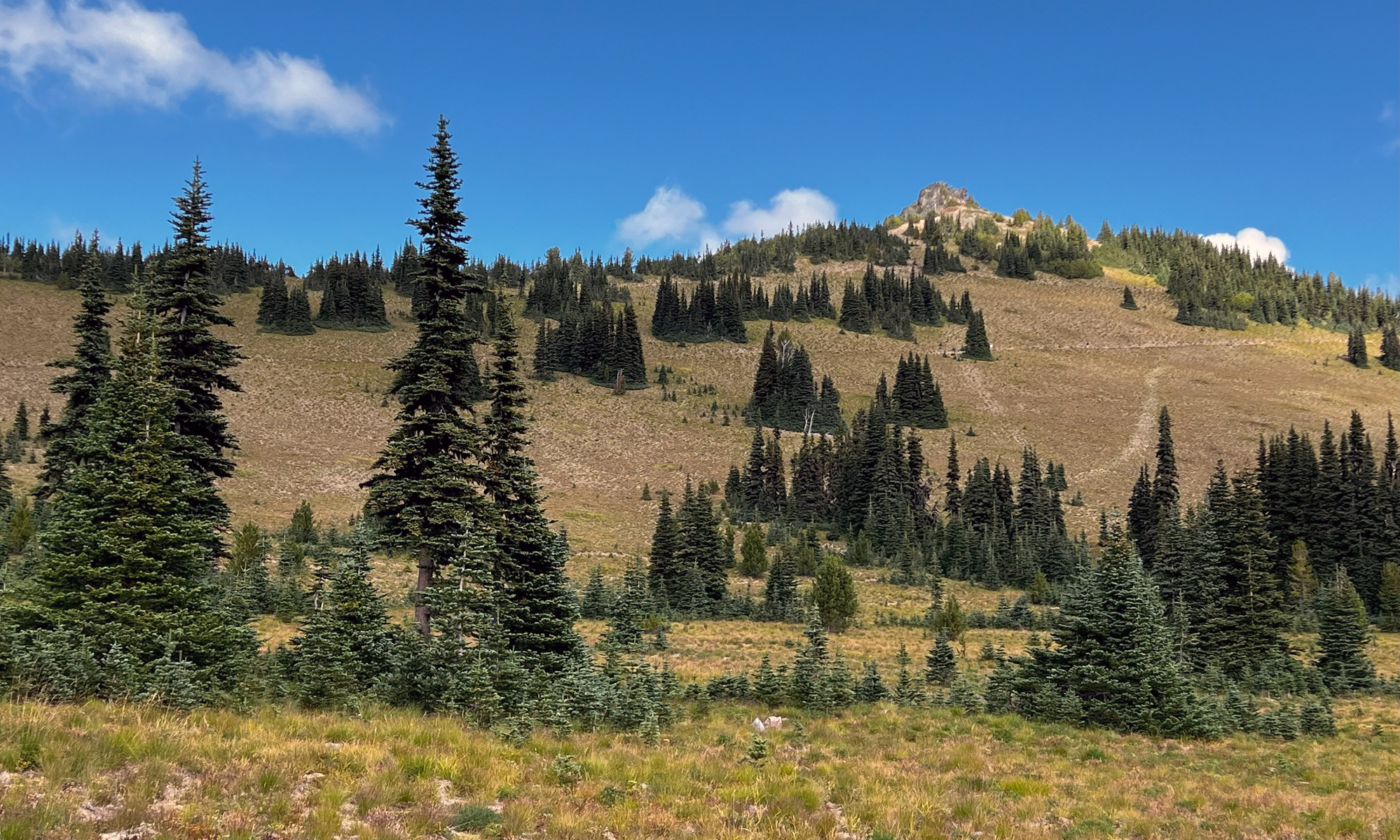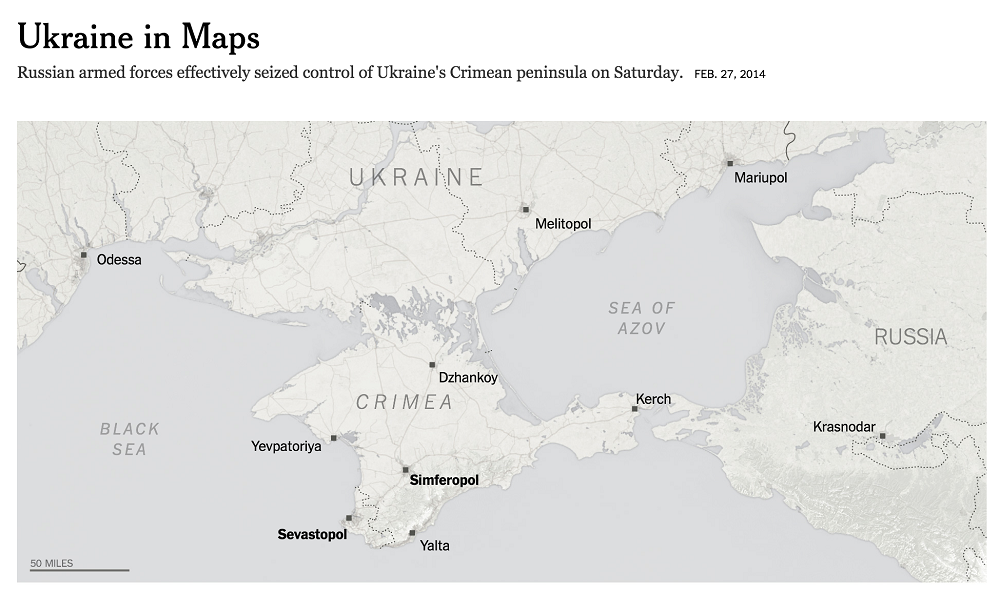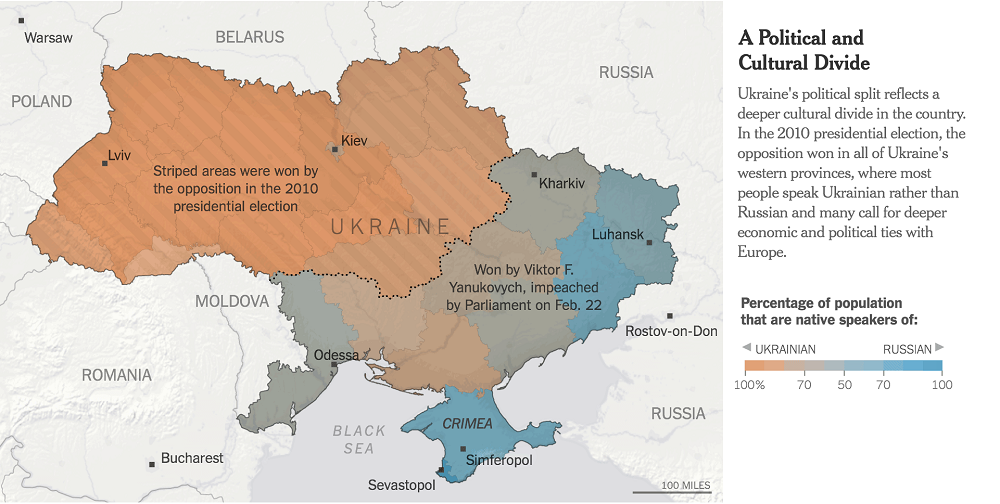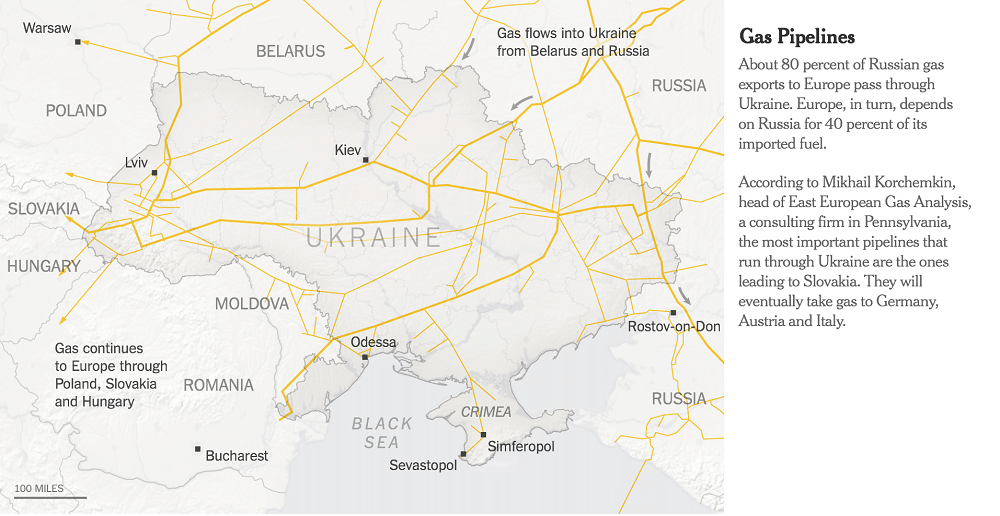So .. looks to me that President Putin waited (of course) until the public relations campaign of the Sochi Olympics was over, before turning his full attention to the unrest in the Ukraine. I did not know the peninsula at the south of the Ukraine is called Crimea .. but I vaguely remember the Crimean War from school history. The 1853-56 Crimean War had Russia lost to an alliance of France, Britain, the Ottoman Empire, and Sardinia. During the war, the British troops established their own base there, and then made their infamous (and suicidal) Charge of the Light Brigade against Russian forces. Anyway, check out these maps from the NY Times and an article (written on Feb 23) from the Wall Street Journal that explains some of the recent events and geopolitics in the Ukraine.
A Quick Guide: What’s Happening in Ukraine (from the Wall Street Journal, Feb 23)
The dramatic collapse of Ukraine’s government in recent days comes after months of political turmoil and social unrest. Demonstrators have been rallying against the government of President Viktor Yanukovych. Here’s a look at what’s happening in Ukraine and why:
What initially set off the protests?
Antigovernment demonstrations kicked off late last year after President Yanukovych, under pressure from the Kremlin, turned away from a European trade and political deal and sealed a $15 billion bailout from Russia. Hundreds of thousands of people took to the streets. In the weeks that followed, the protests transformed into a broader outcry against official corruption and police violence.
What’s going on now?
After months of protests, Mr. Yanukovych left the capital Saturday, and protesters took control of the city center. Ukraine’s parliament voted to remove Mr. Yanukovych and set new presidential elections for May 25. Ukraine opposition leader and former Prime Minister Yulia Tymoshenko was released from prison. Mr. Yanukovych has vowed to remain in power.
Who is Yulia Tymoshenko?
Ms. Tymoshenko, known for her sharp tongue and peasant-style braid, was a leader of the 2004 Orange Revolution that thwarted Mr. Yanukovych’s first run at the presidency. He staged a stunning comeback in 2010 to defeat her after a bitter campaign. She was then jailed in October 2011 for abuse of office for allegedly ordering a subordinate to sign a natural gas deal with Russia in 2009, which prosecutors said led to huge losses for Ukraine. She has denied any wrongdoing, calling the case part of a political witch-hunt.
What is at stake for the EU and Russia?
Ukraine, a country of 46 million, straddles Western and Eastern Europe and has become a battleground for political and economic influence from the European Union and Russia. Having Ukraine as a clear political ally is critical for Russian President Vladimir Putin’s quest to integrate and regain influence over ex-Soviet states. Ukraine has been an important target for an EU program aimed at encouraging democratic change in the region in return for free-trade agreements.
Why is what’s happening important?
Ukraine hosts a number of key pipelines that funnel Russian natural gas to Europe. Russian state-owned gas company OAO Gazprom meets a quarter of the EU’s gas needs, the bulk of which flows via Ukraine. Ukraine itself receives the bulk of its natural-gas supplies from Russia, and Ukrainian officials have accused Moscow of using its control over gas pipelines that lead into Ukraine as a political bargaining chip. Payment disputes led Gazprom to cut flows to Ukraine in 2006 and 2009, which also interrupted the flows of gas to other European countries.
How is Ukraine’s economy faring during this turmoil?
Ukraine is currently in recession, and it suffers from a wide current-account deficit, which means it buys more goods from abroad than it sells. The Ukrainian government said one reason it turned down the EU deal was that it needed to fix relations with its former Soviet master to avoid significant economic hardship. The political turmoil has put markets in Ukraine under pressure.
Is Ukraine divided?
Mr. Yanukovych fled to Ukraine’s Russian-speaking east Saturday, where heavy industry fueled by Russian gas dominates the economy. In the west, where some regions were once part of Poland and Austria’s empire, most people speak Ukrainian and feel closer to Europe, where many have jobs. Despite these differences, there are few signs the country is in danger of a split.



